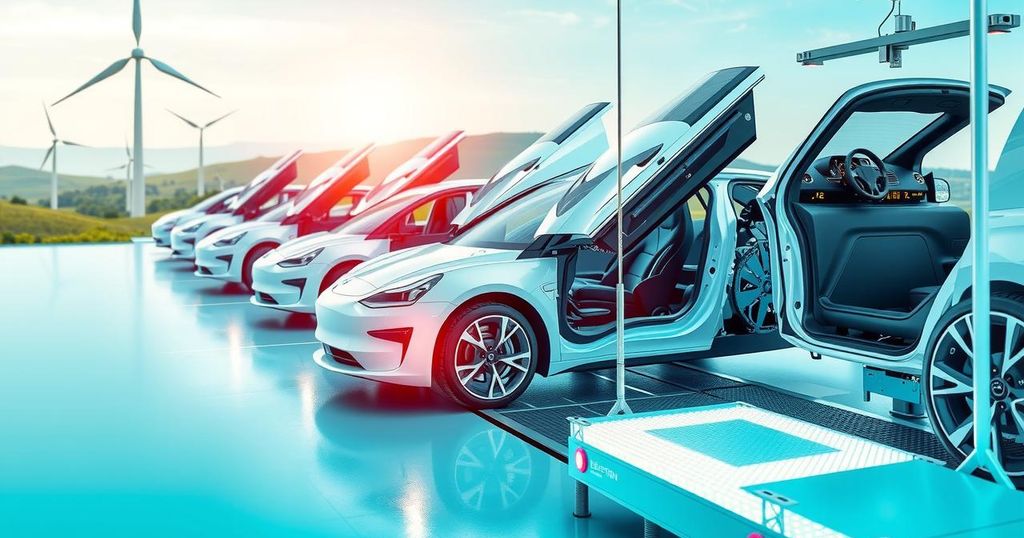Morocco’s Ambitious Plan for Electric Vehicle Production and Green Transport
Morocco aims to lead in electric vehicle production, covering the entire process from raw material extraction to vehicle assembly, with plans to triple exports by 2030. Investments in cleaner public transport, including 7,000 electric buses, are underway. These efforts align with the country’s goal of reducing pollution and achieving zero carbon emissions, especially in light of the upcoming 2030 FIFA World Cup.
Morocco is set to position itself as a pioneer in electric vehicle production and green transportation. The country’s Industry and Trade Minister, Ryad Mezzour, announced aspirations to establish a comprehensive electric car manufacturing capability, encompassing the full spectrum from material extraction to vehicle assembly. This initiative aims not only to enhance Morocco’s automotive industry but also to bolster its economy by potentially tripling exports by 2030.
The government is actively pursuing the integration of cleaner public transport solutions, with plans to incorporate 7,000 electric buses into the transportation system. An initial order of 1,300 electric buses has been placed, and projections indicate that at least half of the remaining fleet will also feature electric models. Furthermore, Morocco is committed to local production of high-powered electric buses, which currently carry a price tag between $180,000 and $200,000.
As the 2030 FIFA World Cup approaches, Morocco views this transition towards green transportation as central to its broader modernization efforts aimed at reducing pollution. Minister Mezzour noted that these initiatives align with the nation’s long-term objective of achieving zero carbon emissions. This strategic plan highlights Morocco’s commitment to sustainable development in the automotive sector and beyond.
In conclusion, Morocco’s strategic plan to establish electric vehicle production and enhance green transport infrastructure reflects its ambition to be a leader in the automotive sector. With significant investments in electric buses and the goal of achieving substantial exports by 2030, the nation is poised for a transformative shift towards sustainability. The upcoming FIFA World Cup serves as a catalyst for modernization and environmental consciousness within the transport system.
Original Source: globalsouthworld.com




Post Comment